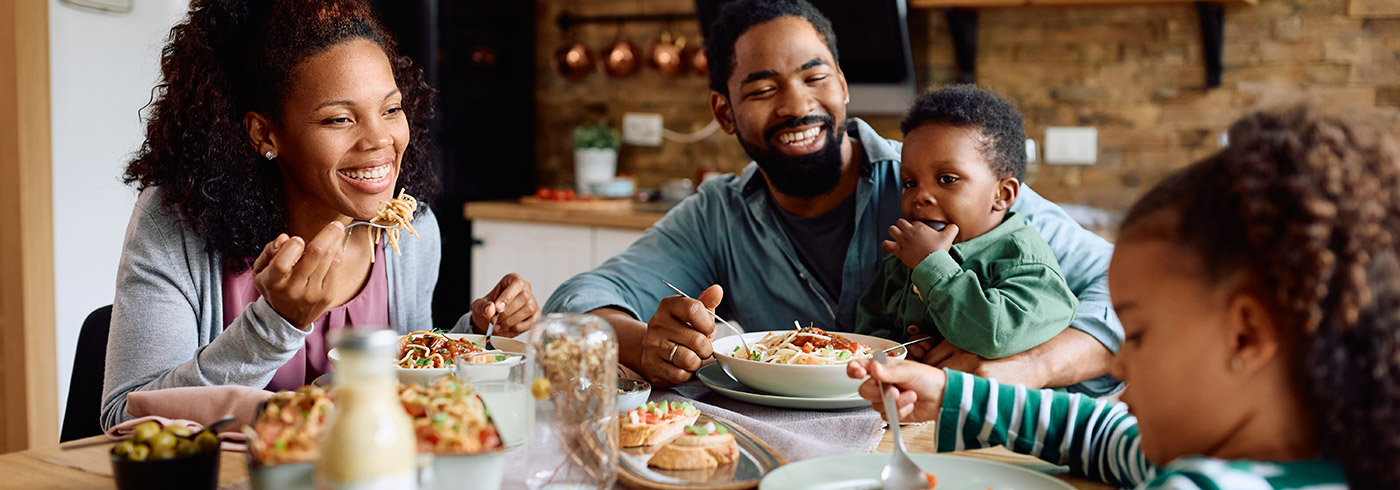
Feeding Babies and Young Children
A positive relationship with food starts early in life. Parents and caregivers play an important role in helping children develop healthy eating habits for a lifetime!
Six to 12 months
Around six months a baby will show signs they are ready to eat solid foods such as:
- Using head control when sitting.
- They can sit up in a high chair.
- Opening their mouth when they see food coming.
- Turning their head to look at objects.
- Picking up items like toys and bring them to their mouth.
Learn about how to start solids, how much your baby should be eating, food ideas and what to do if your baby refuses new foods:
Toddlers and preschoolers
Parents, caregivers, and children share responsibility for eating. How you feed your child is as important as what you feed them.
Parents and caregivers decide:
- What foods to offer.
- When to offer meals and snacks.
- Where your child will eat.
A child decides:
- Whether to eat.
- How much to eat.
Offer a variety of foods from Canada's Food Guide, these foods have the nutrients your child needs for their growth and development.
Young children have small stomachs, provide regular chances for them to eat throughout the day. At this age most children will eat three meals and two to three snacks per day.
The amount they eat will vary from day-to-day, young children are usually aware of their hunger signals. They will eat when they are hungry and stop when they are full.
Learn more about common feeding challenges and solutions that will help you and your children enjoy mealtimes:
Contact Us




